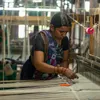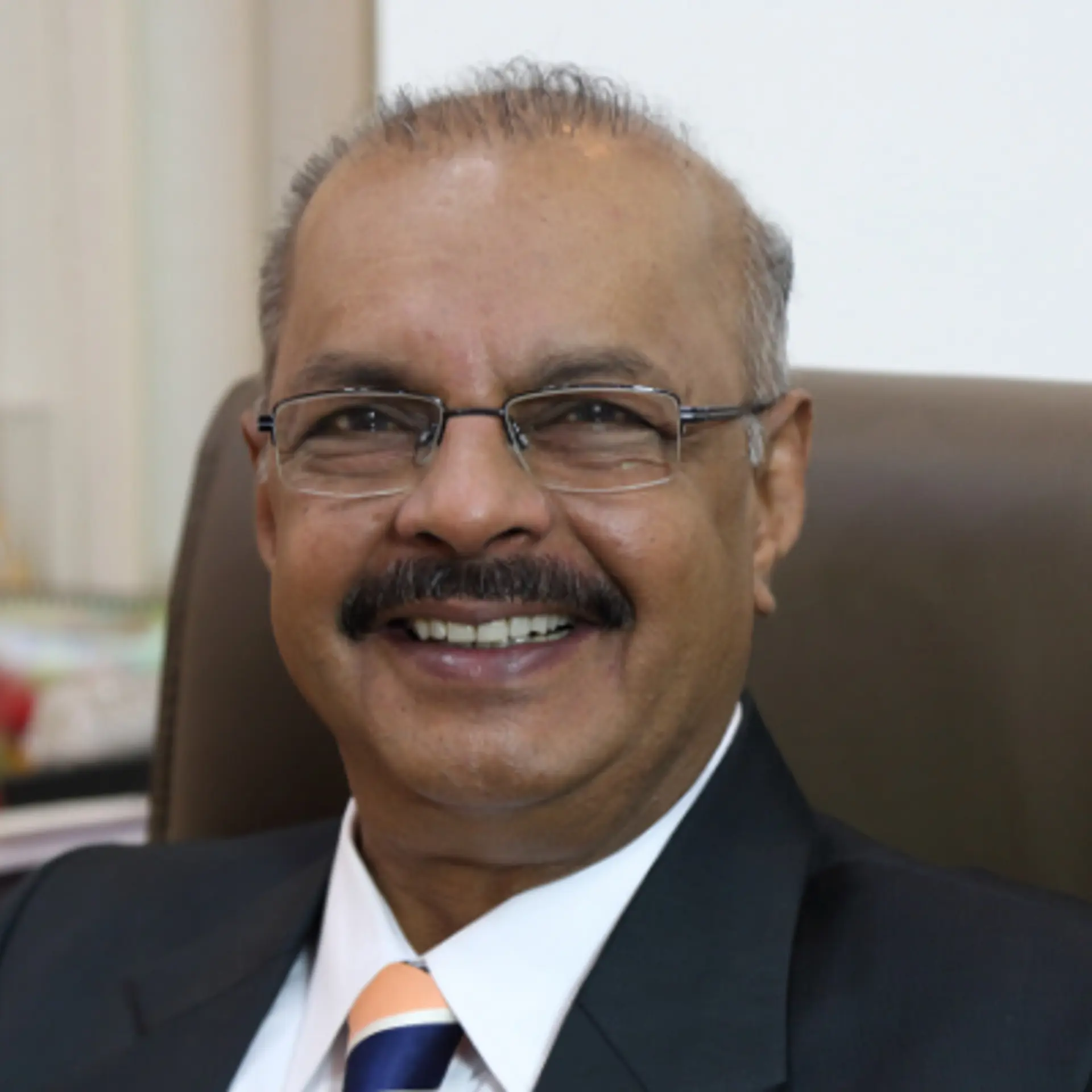Meet the urban brands empowering rural employment in India
Rural unemployment has been one of the biggest concerns in India. SMBStory speaks to a few artisans, farmers, and industry experts to understand what lies ahead for the rural economy.
Aarti, a Jaipur-based artisan working with apparel brand Pinklay, had just one goal - to be financially independent.
Dhwajpal, another artisan from the village of Dadri in Uttar Pradesh had always dreamt of living in a pucca house, but he couldn’t afford one - until he joined Organic India, when things started falling in place for him with a regular income.
Aarti and Dhwajpal are just a few examples of rural artisans and farmers who have for long been unemployed and struggling financially, waiting for opportunities to bring their skills to work.
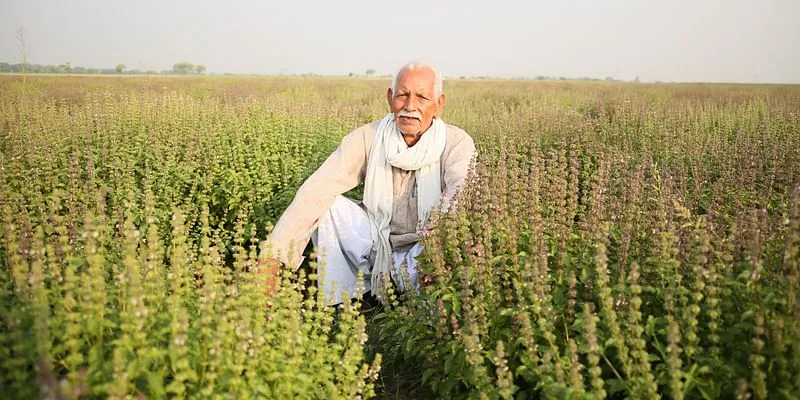
Farmer from the Organic India farmland
Rural unemployment has been a big concern in India. According to official figures, it is estimated that seven million artisans in India (up to 200 million according to unofficial sources) are engaged in craft production to earn their livelihood. After agriculture, textiles and handicrafts sector is the second largest employer in the country. However, most of these artisans and craftsmen do not get their value’s worth - caught between exploiting middlemen and lack of exposure to marketing opportunities.
Land grabbing, environmental constraints, sharecropping and other malpractices have increased unemployment among rural farmers. As many of the marginal farmers are illiterate, they are left largely unaware of their rights and choices, leaving them incapable of earning a decent livelihood.
This is where brands that work closely with artisans, craftsmen, and farmers, make all the difference.
Many urban brands like Fabindia, Okhai and more have been in the forefront, promoting artisanal and agricultural products through their offerings, and helping the rural community thrive, especially in the wake of the pandemic.
The demand for artisanal and agricultural products
Artisans and farmers comprise a large section of rural population looking for work in the country’s cities. And with consumers becoming more conscious about sustainability, there is rising demand for artisanal and agricultural products. Lekhinee Desai, co-founder of The Indian Ethnic Co, a Mumbai-based apparel company started by a handloom loving mother-daughters, believes that in the time to come, the demand for artisanal products will only grow multifold as consumers have become more aware of sustainable measures.

The Indian Ethnic Co's Chanderi silk sarees handblock printed in Ajrakh Dabu style
According to Lekhinee, fast fashion has taken a back seat and conscience towards sustainable fabrics is on the rise. It is also because people are now more willing to support small businesses, artisans, and weavers, she adds.
She claims The Indian Ethnic Co works with around 400-500 artisans to serve the growing demand of handmade clothing and jewellery, not just in India but also across other countries.
The same goes for the modern agricultural produce that distances itself from harmful chemicals and pesticides. The pandemic has made people more conscious about their intake. Consumers are more alert than ever before and Subrata Dutta, Managing Director of Organic India, a company that produces organic herbals and Ayurvedic health products, says consumers are looking for healthier options on an everyday basis. “There is an upward demand for chemical-free food crops not only in India, but also in international markets, which will eventually become the norm,” he says.
Lekhinee says that the pandemic fuelled the idea of supporting small and medium businesses, and the rising demand for products that are heavily dependent on rural art and skills has conceived many smaller players in the market, who are gearing up to slice their share.
Debika Chakraborty’s Hiya by Devam, founded in November 2020, is also an outcome of supporting artisans all around the country. She is confident that the demand for sustainable fashion is only in its early days.

Hiya by Devam's Kantha embroidered Tassar dupatta and Bishnupuri handpainted silk saree
Creating an impact
Pinklay’s Daisy Tanwani feels India’s villages are a huge source of untapped talent. She says, with some upskilling and craft reinvention, opportunities will open up more, which can change many lives.
“It was very evident from my early interactions with Aarti that the financial independence this job provided gave her the courage to stand up to domestic violence and contribute to her family meaningfully,” she says.
Pinklay, directly and through its partners, engages with over 400 artisans today. “I believe if these initial experiences didn’t come through, our trajectory would have been different and may be not as gratifying as it is today,” she adds.
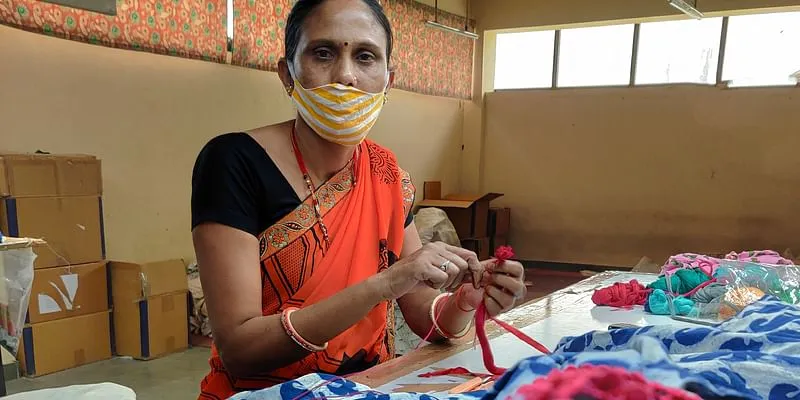
Artisan Gudi Bai making tassle for Pinklay's collection
Providing employment and income opportunities has influenced farmers in more ways. For instance, landless farmers are now not forced to migrate in search of work.
According to Subrata, Organic India works with nearly 2000 direct farmers where each farmer employs close to 25-30 workers for the entire season. This has reduced migration of landless workers for 4-5 months during each cropping season.
Wingreens Farms by Anju Srivastava and Arjun Srivastava has gone one step ahead, as the organisation not only employs farmers, but members of their family as well, by providing them with opportunities for additional sources of income.
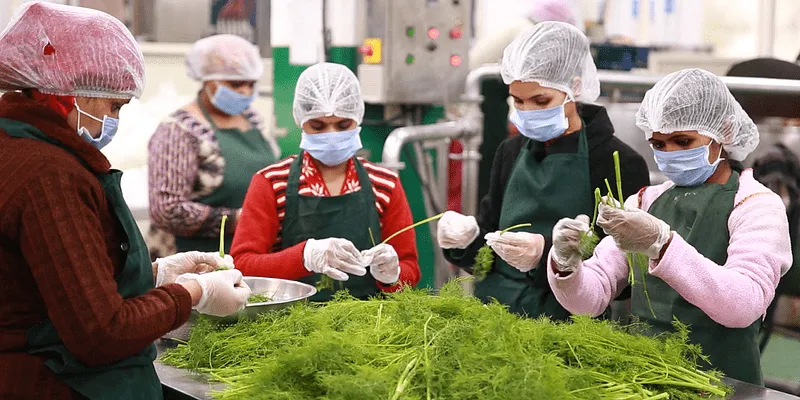
Women from the farming background working at Wingreen's facility
The road ahead
The demand for artisan products and chemical-free agriculture produce is only going to increase, what with increased awareness, and availability of more selections.
“Earlier, traditional arts were dying a slow death as this kind of work cannot be taught. These skills are passed on from generation-to-generation, but due to lack of demand, newer generations of artisans were shifting to cities for more lucrative careers to support families. Now, as the demand is out there, and new brands are also cropping up, we can foresee that rural unemployment may diminish,” says Lekhinee.

Subrata Dutta, Group Managing Director, Organic India along with farmers
Currently, amongst developing countries, India leads the cue of handicraft-export business in the world.
Debika also believes that the recent emerging trend of sustainable fashion has widely opened up the economy for rural artisans and weavers.
In the agricultural sector, Subrata further recommends cultivating a mix of traditional and non-traditional crops that could perhaps help farmers build a more secure future. Products like medicinal herbs and new age crops will see a thrust given the post-pandemic situation, and farmers should be ready for that, he advises.
YourStory’s flagship startup-tech and leadership conference will return virtually for its 13th edition on October 25-30, 2021. Sign up for updates on TechSparks or to express your interest in partnerships and speaker opportunities here.
For more on TechSparks 2021, click here.
Applications are now open for Tech30 2021, a list of 30 most promising tech startups from India. Apply or nominate an early-stage startup to become a Tech30 2021 startup here.
Edited by Anju Narayanan



